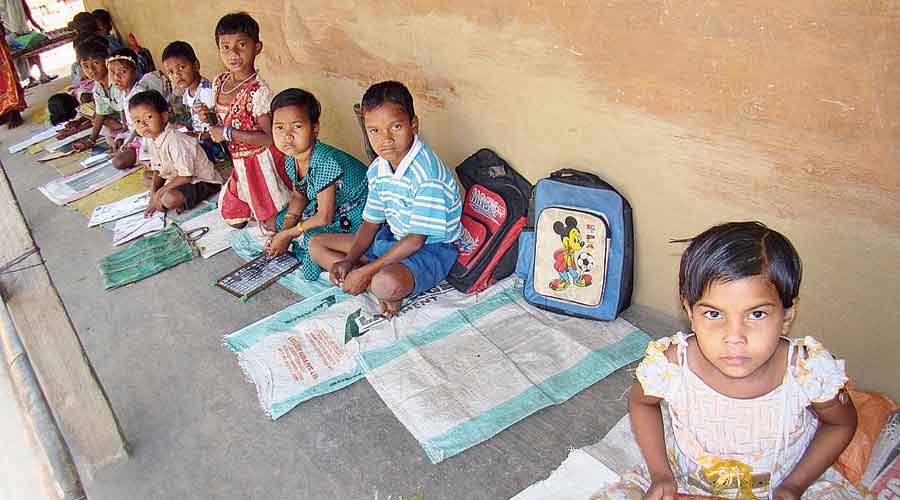The closure of Anganwadi centres in Jharkhand for the past six months has deprived around two-thirds of children aged between six months and three and nearly half of those between three and six years of their take-home ration, according to a survey conducted in the last week of June.
The sample survey was conducted by the state chapter of Right to Food Campaign in association with local civil society organisations and the report was released on Monday.
On the reason behind conducting the survey, state convener of the campaign Asharfi Nand Prasad said: “We had been hearing that the take home ration, supposed to be distributed to children attached to Anganwadi centres of their respective areas, didn’t reach many families.”
The survey covered 8,818 families attached to 2,037 Anganwadi centres spread across 159 blocks in all the 24 districts of Jharkhand, Prasad said, adding the emphasis was given on the families belonging to the deprived sections.
The state government had decided that dry ration would be given to such children as their Anganwadi centres that would provide cooked meals remained closed during the pandemic.
The survey found that 73 per cent of the families surveyed had children aged between six months and three years but only 32 per cent of them received dry ration during the six months from January to June.
Despite assurances of delivery of ration at home, only eight per cent children received it at their homes while families of 78 per cent had to collect it from Anganwadi centres and 13 per cent from the home of Anganwadi sevikas (helpers).
Though 53 per cent of beneficiary families got ration in January, their number reduced to seven per cent in May and nine per cent in June, the survey found.
On the other hand, 55 per cent of families having children aged between three and six years got dry ration during the six months from January to June 2021, the survey found.
Of these families, 75 per cent had to collect it from Anganwadi centres and 15 per cent from sevikas’ homes while 10 per cent of the beneficiaries got it delivered at their homes.
Though 78 per cent of these children got the ration in January, the number dropped to 17 per cent in May, the survey report said.
Asked about the reason behind drop in the number of beneficiaries, Prasad said: “Actually, the Anganwadi workers and self-help groups spend from their own pockets for supplying cooked food or ration and get the amount reimbursed later.” He added that shortage of funds may be the reason for the lack of take home ration.
Prasad said they are planning to discuss the findings of the survey with the social welfare minister and secretary soon.
The social welfare secretary was in a meeting and could not speak when approached for his comments.











